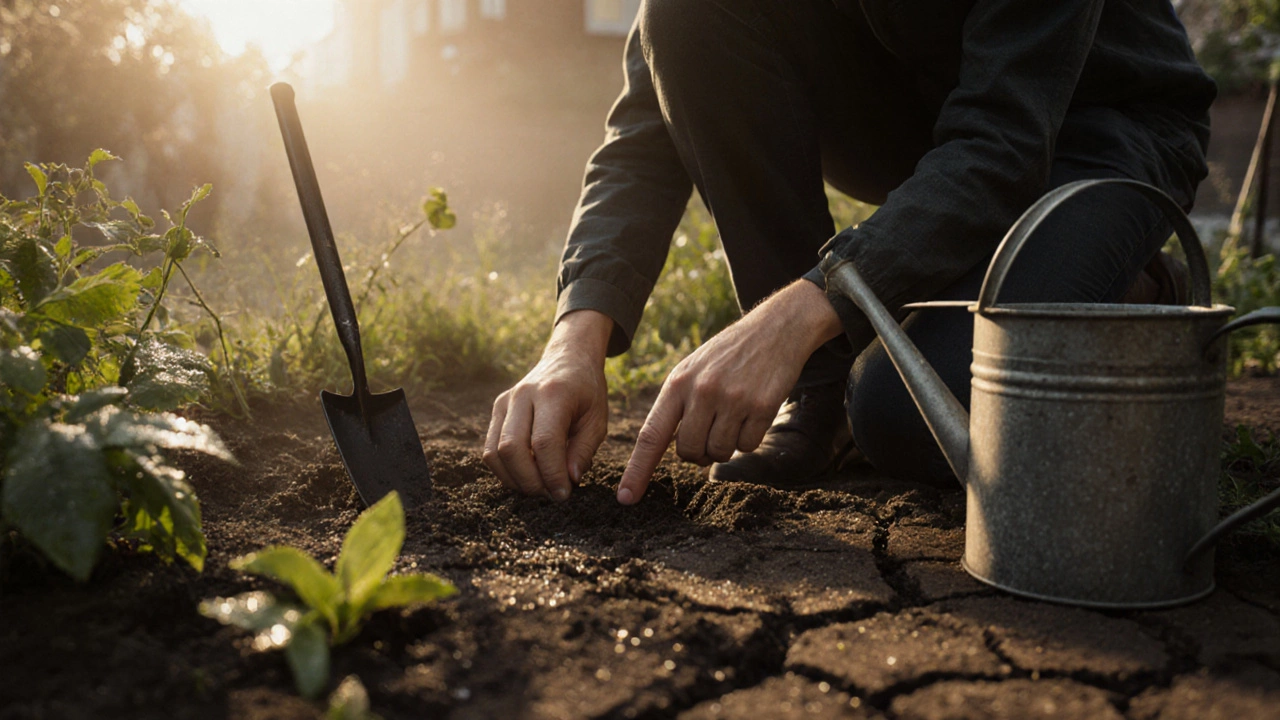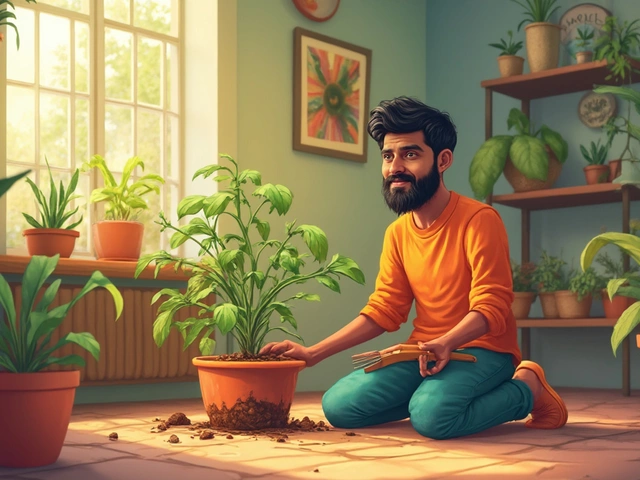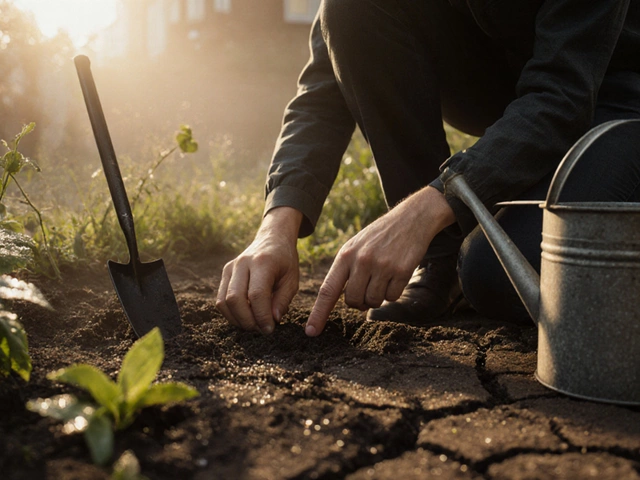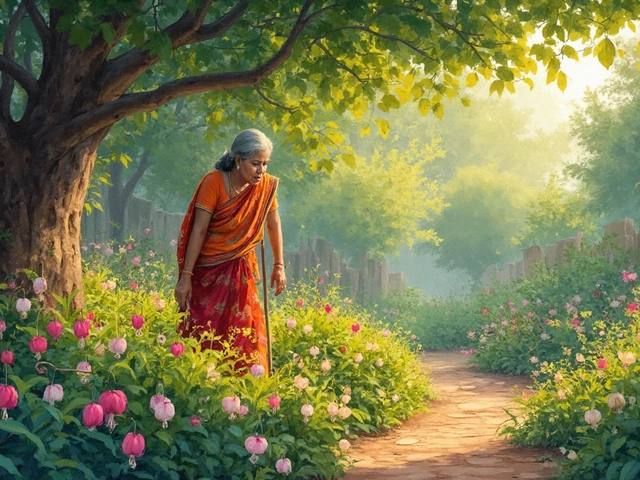Soil Moisture Checker
How to Use This Tool
Enter your soil type and plant type to get personalized watering advice based on gardener habits from the article. Note: Check soil moisture by inserting your finger 2 inches deep
Anyone can buy a trowel and plant a seed. But what separates someone who just dabbles in gardening from someone who truly grows things well? It’s not about having the fanciest tools or the biggest plot. It’s about the quiet, consistent habits, the patience, and the willingness to learn from what the plants tell you. A good gardener isn’t born-they’re made, one failed tomato plant and one thriving rosebush at a time.
They Pay Attention, Not Just to Plants, But to Patterns
Good gardeners don’t just water on Mondays and hope for the best. They notice things. The way the leaves curl when it’s too dry. The way the soil cracks after three days without rain. The subtle shift in color near the base of a stem that means root rot is starting. They watch. They remember. They connect the dots.
In Brighton, where rain comes in fits and starts, I’ve seen gardeners who check the weather app and water anyway-only to drown their lavender. The good ones look at the soil, not the forecast. They stick a finger in. If it’s damp two inches down, they wait. If it’s dusty and pulling away from the pot, they water. Simple. But most skip this step.
They Know Their Soil Like a Farmer Knows Their Land
You can’t grow healthy plants in bad soil, no matter how many fertilizers you pour on. A good gardener tests their soil. Not with a fancy kit you buy online, but by feeling it. Is it heavy and sticky after rain? That’s clay. Does it fall apart like sand? That’s sandy soil. Is it dark, crumbly, and smells earthy? That’s good loam.
They know that clay needs organic matter to loosen it. Sandy soil needs compost to hold water. They add well-rotted manure or leaf mold every autumn-not because it’s trendy, but because it works. They don’t just buy bagged compost; they make their own. Or they get it from a local farm. They understand that soil isn’t dirt. It’s a living system.
They Choose the Right Tools-and Use Them Right
Yes, tools matter. But not because they’re expensive. A good gardener doesn’t own ten different spades. They own one sharp, well-balanced one that fits their hands. They keep it clean. They oil the wood handles. They sharpen the blades every spring.
They know the difference between a border fork and a digging fork. They use a hand trowel for planting bulbs, not a spade. They don’t use pruners to cut through thick branches-that’s what loppers are for. They understand that using the wrong tool breaks both the plant and the tool.
And they don’t ignore maintenance. A rusted hoe won’t cut through weeds. A dull pruner crushes stems instead of slicing them cleanly. That’s how diseases spread. A good gardener keeps their tools in a dry shed, not left out in the rain. They know a $20 tool that’s cared for lasts longer than a $100 one that’s neglected.
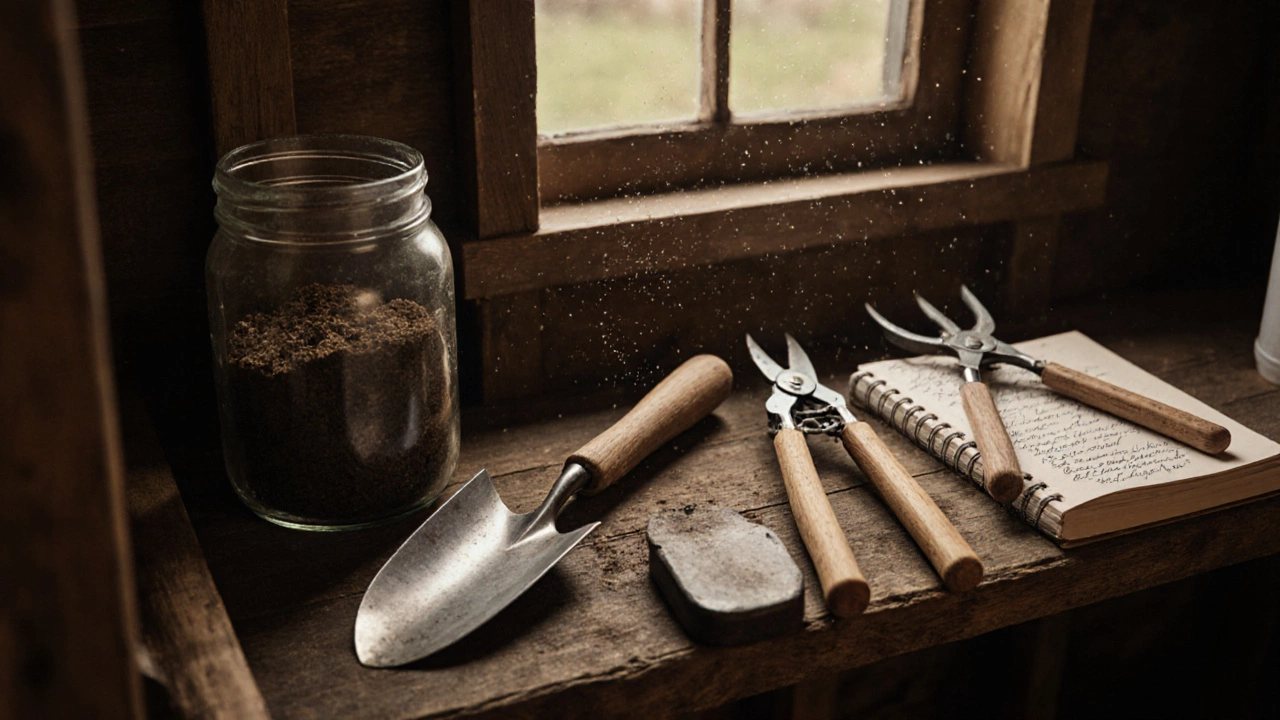
They Work With Nature, Not Against It
Good gardeners don’t fight the seasons. They work with them. They plant garlic in November so it overwinters and comes up strong in spring. They leave seed heads on perennials for birds in winter. They don’t spray chemicals at the first sign of aphids-they watch. Sometimes ladybugs show up. Sometimes a gentle spray of water is enough.
They plant marigolds near tomatoes because they know the flowers deter nematodes. They grow nasturtiums not just because they’re pretty, but because they trap aphids away from their veggies. They accept that some plants will fail. That’s nature. They don’t blame themselves. They adjust.
In my own garden, I let a patch of nettles grow by the fence. They’re a magnet for butterflies and ladybirds. I don’t pull them. I just don’t let them spread. That’s not laziness. That’s strategy.
They’re Patient-and Realistic
Good gardeners don’t expect instant results. They don’t plant a seed on Monday and demand a harvest by Friday. They understand that some plants take years to mature. A fig tree might not fruit for three seasons. A rose might take two years to settle in.
They don’t get discouraged when slugs eat their lettuce. They put down beer traps. Or they grow lettuce in pots on the patio where slugs can’t reach. They don’t see failure as defeat. They see it as data. What makes a good gardener isn’t perfection-it’s persistence.
I once spent three years trying to grow lavender in heavy clay. I added grit, raised beds, mulch, drainage pipes. Nothing worked. Then I gave up. I planted it in a pot with sharp compost. It thrived. The problem wasn’t the plant. It was my assumption that it had to go in the ground.
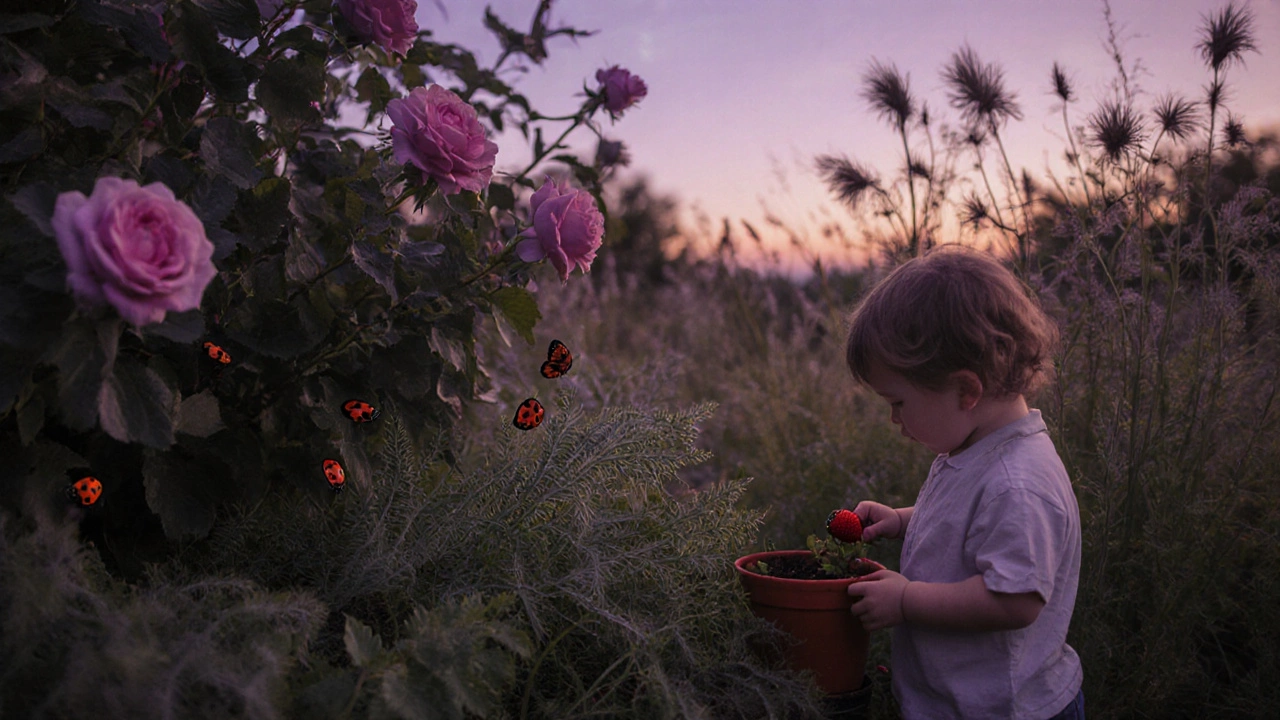
They Learn From Others-But Think for Themselves
Good gardeners read books. They watch YouTube videos. They talk to neighbors. But they don’t copy blindly. They test. They ask: Does this work in my climate? In my soil? With my sun exposure?
Someone might swear by coffee grounds as fertilizer. But in my garden, they made the soil too acidic for my roses. So I stopped. Another gardener says to mulch with straw. Fine-until I tried it and got a mouse infestation. Now I use leaf mold instead.
They don’t follow trends. They follow results.
They Enjoy the Process, Not Just the Payoff
The best gardeners don’t garden to show off. They garden because they love the smell of wet earth after rain. Because they like the quiet of early morning with a cup of tea, watching bees work the borage. Because they feel calm when their hands are in the soil.
They don’t measure success by how many tomatoes they harvest. They measure it by how many mornings they spent outside. By how their hands got dirt under the nails. By how their kid learned to pick a strawberry without squashing it.
That’s the real reward.
| Common Behavior | What a Good Gardener Does Instead |
|---|---|
| Waters on a fixed schedule | Checks soil moisture with a finger |
| Uses one tool for everything | Uses the right tool for the job |
| Follows social media advice blindly | Tests ideas in small patches first |
| Removes all weeds immediately | Identifies which weeds help or hurt |
| Feels guilty about plant loss | Sees it as a learning opportunity |
It’s Not About the Tools-It’s About the Mindset
You can have the best pruners, the most ergonomic gloves, the smartest irrigation system. But if you don’t pay attention, if you don’t adapt, if you don’t care enough to learn, you’ll still struggle.
Good gardening isn’t about perfection. It’s about presence. It’s about showing up, even when the weather’s bad. It’s about noticing the first bud in spring. It’s about knowing when to leave something be.
That’s what makes a good gardener.
Do you need expensive tools to be a good gardener?
No. A good gardener uses tools that fit their hands and are kept in good condition. A $15 trowel that’s cleaned and sharpened every year will outperform a $60 one that’s left to rust. Quality matters more than price. Focus on sharp blades, sturdy handles, and proper storage.
Can anyone become a good gardener, even if they’ve killed plants before?
Absolutely. Every gardener kills plants. Even the best ones. The difference is what they do after. Good gardeners ask why it died-was it too much water? Not enough sun? Poor soil? They adjust. They try again. Gardening isn’t about being perfect. It’s about being curious and persistent.
What’s the most important habit of a good gardener?
Observation. Noticing changes in leaves, soil, and insect activity before problems become serious. Most gardeners react too late. Good ones catch issues early by checking their plants daily-even if it’s just for five minutes. That habit alone saves more plants than any fertilizer or spray.
Is it better to start small or go big with your first garden?
Start small. A single raised bed or a few pots is better than a huge plot you can’t maintain. Overwhelmed gardeners quit. Successful ones build confidence with a few easy plants-like lettuce, radishes, or marigolds. Once you’ve harvested your first crop, you’ll know what you’re capable of-and what you need to improve.
How long does it take to become a good gardener?
There’s no timeline. Some people click with gardening after one season. Others take five. It’s not about years-it’s about attention. If you’re watching, learning, and adjusting every time something fails or succeeds, you’re growing as a gardener. The best gardeners are always learning. They never stop.
